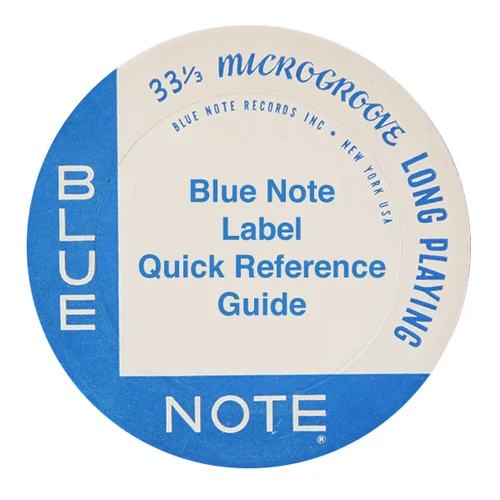A Woody Shaw Bonanza
/A fortuitous couple days, Part 1: While perusing eBay for Woody Shaw LPs that were missing from my collection, I came across an auction for a vintage copy of Song Of Songs, a record that I have long been keen to acquire, but it's one that doesn't come up often and when it does it is often an overpriced OJC reissue. This particular auction had less than a day left and remained at it's $25 starting price with no bids, plus the seller was offering free shipping. All of that peaked my interest, but I was also a tad concerned that the seller had less than fifty feedbacks. I figured that if the price stayed under $30 I would go after it. As it turns out, I was the only bidder, so I scored a VG+ copy of Song Of Songs for, well, a song.
A fortuitous couple days, Part 2: The day following my auction victory and payment, I was scrolling through the Dusty Groove "new arrivals" page when I came across Blackstone Legacy, the one Woody Shaw album I've been dying to add to my collection for years now. Again, when it comes up on eBay it often goes for quite a haul, even when there are noticeable condition issues. I decided to jump on this copy even though it was a little more than I wanted to pay at $45, but I trust Dusty Groove's grading and they had this one listed correctly at VG+, so even though I may have overpaid slightly I at least knew what I was getting which is sometimes worth a few extra dollars in my book.
A fortuitous couple days, Conclusion: One week later I took a trip to the mailbox as the tracking info from Dusty Groove told me that my LP had arrived. No such tracking info from my eBay seller (I guess that's what you get with free shipping), but - lo and behold! - when I opened the box there sat both records ready for a delightful weekend of listening. The vinyl gods had shined down upon me, it all must have been meant to be!
Woody Shaw • Blackstone Legacy • 1971 • Contemporary S7627/28
Recorded December 8 & 9, 1970 in New York City
The Selection:
The Players:
Woody Shaw - Trumpet
Gary Bartz - Alto & Soprano Saxophone
Bennie Maupin - Tenor Saxophone, Bass Clarinet, Flute
George Cables - Piano, Electric Piano
Clint Houston - Bass (except B2)
Ron Carter - Bass (except A1)
Lenny White - Drums
The Tracks:
A1. Blackstone Legacy
B1. Think On Me
B2. Lost and Found
C1. New World
D1. Boo-Ann's Grand
D2. A Deed For Dolphy
The Record:
All bias disclosed up front: when I first heard Blackstone Legacy about ten years ago it instantly became one of my favorite post-golden age jazz records. It is a marvelous and exciting electric post-bop progressive jazz recording (how's that for some sub-genre classification?). It is also historically significant as Woody Shaw's debut recording as a leader, announcing a new and important voice on the scene (he did record an album in 1965 but that was not released until 1983). He had, of course, appeared on some excellent records throughout the 1960's - Iron Man with his mentor Eric Dolphy was his first notable appearance, but he would also show up on such varied Blue Note recordings as Horace Silver's Cape Verdean Blues, Larry Young's Unity, Hank Mobley's Reach Out and McCoy Tyner's Expansions while he was employed as a "house" player for the label. It was Blackstone Legacy, however, with it's adventurous direction that truly marked Shaw as someone to watch in an era when the jazz scene began to fracture and head into new territory.
The double-album is made up of six long tracks, none come in under ten minutes, while the title track and "New World" are both in excess of fifteen minutes long. Despite the long playing times, none of the compositions lose any energy, rather the opposite is true, as the players are given the room and freedom to expand upon the themes and ideas of each track.
The players are all top-notch, with some names that would become fixtures on the up and coming electric jazz and fusion scenes. Lenny White, who had already appeared on Bitches Brew, would soon become a legendary fusion figure due to his work with Chick Corea's Return To Forever. Gary Bartz and Bennie Maupin were seemingly everywhere in the early 1970's, recording their own work along with appearances with the likes of Herbie Hancock, Miles Davis (Maupin also appeared on Bitches Brew), Donald Byrd and McCoy Tyner, to name just a few. George Cables on the keys is simply amazing, giving the tunes a funky and soulful vibe that keeps the proceedings from veering too far into the avant-garde.
Clint Houston and Ron Carter team up for a formidable two-bass lineup on all but the title track (Houston only) and "Lost and Found" (Carter only). Both guys have their own distinct sound, and are featured on separate channels: Carter on the left and Houston on the right. The saxophone players are also separated for the recording with Bartz heard on the left channel, while Maupin is on the right. It gives the record a very live feeling during playback, something I know is important to many collectors of jazz vinyl.
Then there is the man himself, Shaw, who shines brightly on each and every track. His tone is deep and direct and wonderful. He goes from playing advanced hard bop to free jazz to soul-jazz and back again without hesitation. Shaw is a supremely technically gifted player who was clearly ready to show the world what he had to offer the jazz world as the leader of his own records. As Michael G. Nastos wrote in the All Music review of the album:
There is not a better example of this music from its inception, documented on tape, than this other worldly session that brought the trumpeter to the jazz world's attention. Furthermore, few have done it better since. Truly a landmark recording, and a pivot point in the history of post-modern music.
Indeed.
The Vinyl:
My copy is on the yellow label, indicating a early-to-mid 1970's pressing, most likely a second or third edition (the original 1971 pressing was on the green and gold label). The vinyl is very thin, but still has a nice bright sound that handles the often dense instrumentation that takes place at times.
Example Of Late 1960's / Early 1970's "Green and Gold" Label (Image From VinylBeat.com)
"LKS 317 D3" & "LKS 318 D3" are stamped in the runoff of the first LP, while "LKS 319 D2" and "LKS 320 D2" are stamped on the second. Each LP also has an inscribed notation in the runoff: "△19314" on the first LP and "△19315" on the second. The "LKS" no doubt refers to the producer Lester Koenig and the recording being in stereo, the rest of the numbers and symbols are beyond my area of expertise (why, for example, would the second LP have "D2" while the first one has "D3"? Wouldn't common sense dictate the opposite. Oh yah, common sense doesn't always apply in the world of vintage vinyl.) Both LPs have a very faint marking as well, although I can't quite make out what it is, I'm thinking an indication from the pressing plant.
The gatefold cover is nice, with extensive and informative liner notes from Nat Hentoff, and the cover photo of the Women of the Bari Tribe in Southern Sudan makes for a classy and timeless cover image that fits the turn of the 1970's perfectly.
I scored mine for $45, I've seen similar copies selling on eBay in the $50 range, but there is one that sold recently for $20 so someone got a good deal. An original pressing in VG+ condition recently sold for $67, which is in the neighborhood of others I have seen sell over the years. I can't speak to the difference in audio quality between an original pressing and the later yellow ones, if anyone does know I'd love to hear about it.
Woody Shaw • Song of Songs • 1973 • Contemporary S7632
Recorded September 15 & 18, 1972 at Contemporary Records Studio, Los Angeles
The Selection:
The Players:
Woody Shaw - Trumpet
Ramon Morris - Tenor Saxophone (A1, B1)
Bennie Maupin - Tenor Saxophone (A2)
Emanuel Boyd - Tenor Saxophone, Flute
George Cables - Piano, Electric Piano
Henry Franklin - Bass
Woodrow Theus II - Drums, Percussion
The Tracks:
A1. Song Of Songs
A2. The Goat And The Archer
B1. Love: For The One You Can't Have
B2. The Awakening
The Record:
Song Of Songs was recorded a little less than two years after Blackstone Legacy, and the electric-jazz and fusion movements were in full swing by this point. Rather than attempt to put out another magnum opus, this album features four focused Shaw originals that are earthier and feature a lot more open space for the band to play around with. This kind of organic electric jazz (lots of offbeat percussion such as chimes and bells) was very popular at the start of the 1970's - reminiscent of the sound of Herbie Hancock's Mwandishi and Crossings albums.
The obscure but capable Emanuel Boyd plays the tenor or flute on all four tracks, and is joined on tenor by either Ramon Morris or Bennie Maupin on three of the tunes. Morris is familiar to me from his killer Groove Merchant date Sweet Sister Funk, but this is the only other session I've heard him play on. Maupin is always great, and just as on Blackstone Legacy he is right in the cut with his fellow players. As with that album the horn players are separated by channel, this time with Boyd on the left channel and wither Morris or Maupin on the right channel.
George Cables returns on the keys, this time he's featured a bit more on the acoustic piano rather than the electric one, but again he is key to the feel of the record with an approach that is not intrusive or showy, but one that hits the mark every time. Henry Franklin on the bass will be familiar to fans of the Black Jazz label and he does an admirable job with another obscure player
Woodrow Theus III on the drums to form a rock solid rhythm section.
Shaw is again in top form, although with a bit more restrained tone this time around, which makes sense considering the earthier and more open sound of the recording. He is especially impressive on the beautiful ballad "Love: For The One You Can't Have" written for his wife, with whom he was separated from at the time. While perhaps not as groundbreaking an album stylistically as Blackstone Legacy, this one is still an exciting post-bop album that still stands as one of the finest jazz records of the day.
The Vinyl:
Another yellow label, but this one appears to be an original pressing indicating that sometime between 1971 and 1973 the green and gold label was replaced by this one. Another (very) thin piece of vinyl with almost no heft to speak of, but still a nice bright and loud sounding LP, with no intrusive noise in the quieter parts of the compositions.
This time there are no stamps, all the markings are inscribed. Side one has "LKS 325 D2" and "△18469(1)", while side two has "LKS 326 D1" and "△18290X(1)" and both sides have the somewhat familiar "MR" in a circle marking, but I can't recall what that means. Again, I seem to remember it having to do with the where the record was manufactured.
This copy ran me a measly $25, so I feel like I got a great deal on it. I rarely see vintage pressings come up on eBay, rather the OJC reissues from the 1980's, which are still decent sounding pressings but are often very overpriced.
"Song of Songs" Inner Sleeve
Woody Shaw - Photo By Tom Copi
Final Thoughts:
Shaw's first two albums as a leader would also be the only two he made for Contemporary. He would make the move to Muse to make some fantastic records before going over to CBS Records to make a handful of amazing recordings (collected on the highly recommended Mosaic set -------). If Blackstone Legacy & Song Of Songs were released a decade earlier, Shaw would probably be a household jazz name along the lines of Freddie Hubbard and Lee Morgan. But, as luck would have it he was making amazing music in the 1970's, a time when jazz music as a commercial and artistic endeavor was on the decline. Any fans of that time when the sound of classic modern jazz was combining with the new wave of electric-jazz are encouraged to seek out these records. You won't be disappointed.














